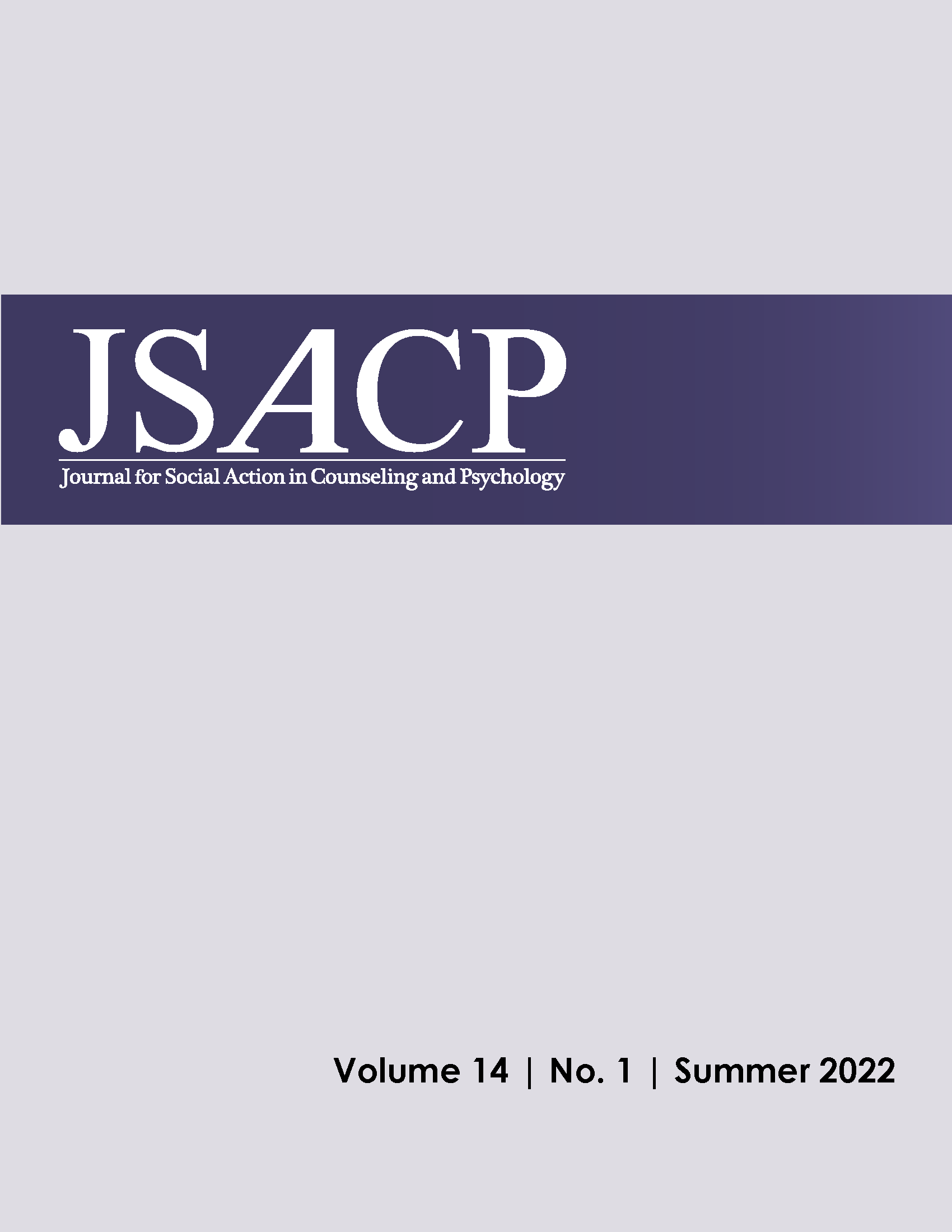Recommendations for Integrating a Social Justice Framework into Clinical Practice: A qualitative analysis with implications for psychology training programs
DOI:
https://doi.org/10.33043/JSACP.14.1.17-36Keywords:
Social Justice Framework, Clinical-Community Psychology, Clinical Practice, Social Context, Strength-based ApproachesAbstract
Social justice is a frequently used buzz word yet an abstract concept in clinical training. As a result, there is minimal guidance on how to implement social justice in clinical practice, which leads to training gaps, uncertainty, and discomfort among clinicians serving historically oppressed populations. This study examined how to integrate the social justice principles of community psychology into clinical psychology practice among doctoral students. The integration of the following social justice principles were analyzed: addressing oppression and social context, utilizing strength-based approaches, facilitating empowerment, acknowledging and managing privilege, and effective advocacy. We utilized qualitative methods to complete 26 one-on-one interviews and a focus group with 5 participants to understand student experiences and explore how they applied the above social justice principles to their clinical practice. Through an iterative process, doctoral student responses were synthesized into a list of recommendations on how to integrate a social justice framework into clinical work. The primary results from this study suggest that students in clinical-community psychology doctoral programs try to use client-centered strategies to understand their clients’ experiences of oppression and incorporate social context and a strengths-based approach into multiple aspects of practice, such as treatment planning and advocacy to connect clients to resources. Students also reported managing their privilege through internal self-reflection and occasional self-disclosure during therapy with clients. However, despite the desire to use socially just practices, several training gaps and needs emerged. These gaps included the need to identify methods of measuring and confirming client empowerment as well as supervisory and institutional support for effective advocacy work. Thus, implications for integrating social justice principles into clinical-community psychology programs, clinical psychology, and related disciplines are discussed.
Downloads
Downloads
Published
How to Cite
Issue
Section
License
Copyright (c) 2022 Munazza Saalim Abraham, Geoffrey Harrison, Sarah Peralta, Jabarey Wells, Bronwyn Hunter

This work is licensed under a Creative Commons Attribution-NonCommercial-NoDerivatives 4.0 International License.
By submitting to JSACP, the author(s) agree to the terms of the Author Agreement. Beginning in 2018, all authors retain copyrights associated with their article contributions and agree to make such contributions available under a Creative Commons Attribution-NonCommercial-NoDerivatives 4.0 International license upon publication in JSACP. Copyrights to articles published prior to 2018 have been transferred from the authors to JSACP.









